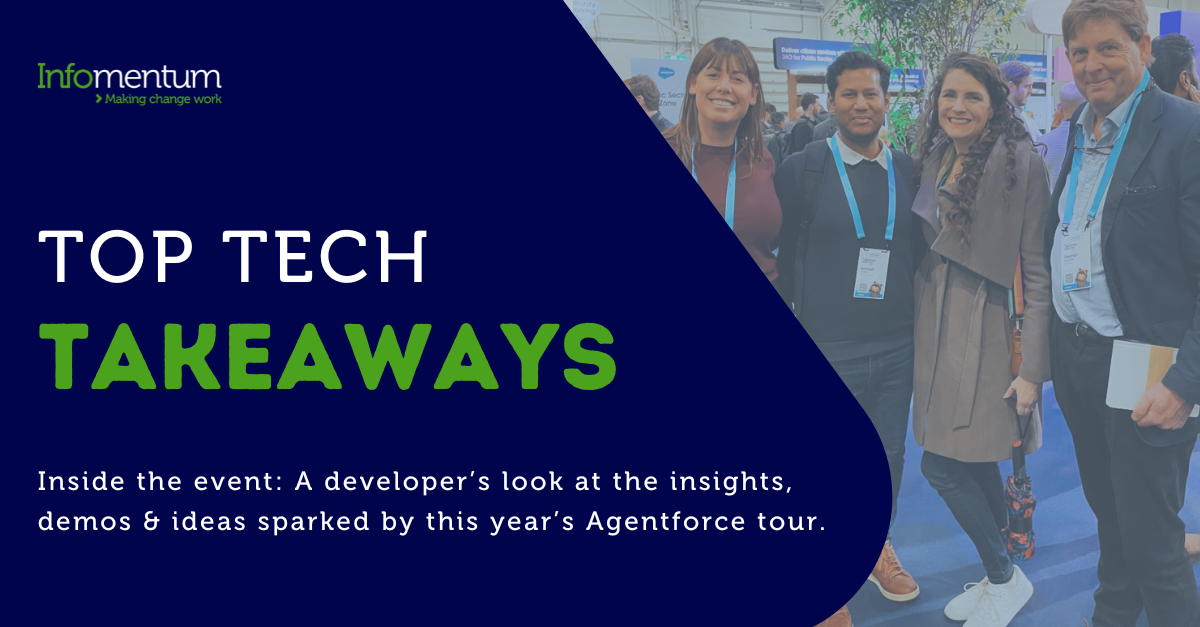I was recently invited along to the WPEngine summit, thanks to Infomentum having worked on a customer’s news and views blog using WPEngine and Wordpress.
First of all, I have to say that the entire conference was great. The speakers were well thought-out, and the topics felt fresh - as well as a great goodie bag at the end! But the talk that really captured my attention was by Monica Cravotta. She talked us through WPEngine's latest research: “The future of digital experiences by generation.”
Cravotta focussed on Generation Z, loosely defined as those too young to remember life before constant connection to the internet. They have endless information available instantaneously, and use technology for functions like getting places and banking. On top of that, they also use digital platforms for entertainment and socialising, so they truly depend on being connected all the time.
Now, if you've read Infomentum's 2013 research on Generation C; the connected generation, you'll know we're sceptical about how accurately you can make generalisations about consumers and employees based on their age. We’re all connected, and this is not necessarily determined by age. Regardless of that though, one insight from WPEngine’s research really stood out:
The digital experience is the human experience.
This is true for Generation Z from WPEngine’s research, and for Generation C from ours. It doesn’t really matter whether or not we remember using physical maps, renting DVDs and writing letters. It doesn’t change the fact that we’ve given them up for Citymapper, Netflix and Whatsapp.
Gen C, as opposed to Z, refers to everyone who is connected. Former letter-writers and kids born with iPhone in hand. Grouping people into Gen C takes a psychographic approach that considers what these people do instead of when they were born. It lets us categorise people by behaviour instead of age, which is key if you are communicating with them through the digital experience you create for them.
Cravotta’s presentation and our research agree that digitally connected individuals are

drawn to personalised and interactive digital experiences. It looks like people are starting to want a digital experience that resembles human to human (H2H) interaction, and that they’re tired of generic marketing content and mass ads.
It’s no secret that consumers now want more open conversation; the era of generic marketing content and mass ads is over, and people expect a more collaborative approach to communication from brands. That means that people expect an exchange, not just information thrown at them.
Why am I talking about this? Because it showcases exactly what I found so interesting about this talk: that the digital experience is the human experience.
People’s emerging brand communication preferences are a symptom of their digitised lifestyles, and could maybe give us clues about where tech is headed in the future. Does the demand for a humanised tech experience mean that we want devices and websites to know more about us, so they can connect with us as individuals? Cravotta talked about this exact development: emotionally responsive websites that interact with us according to how we feel and what we want.
We’ve already seen how sophisticated chatbots and androids have become. It’s peculiar but fascinating that as tech advances, it begins to resemble technology less, and human interaction more.
I think something that unifies us as humans is wanting social belonging and interaction with others. At the same time though, the technology we’re developing means that the need for human interaction is shrinking, because so many of our tasks are headed towards automation.
Is the humanisation of machines a sort of anecdote to this? Are we using our machine-driven move away from being human to become human again? Maybe we are not chasing what it meant to be human in the past. Maybe we are reinventing what it means to be human now, and technology is an integral part of that.
So if human tech is the new techy tech, these emotionally responsive websites could be just one of many humanised tech ventures. I’m curious to see what’s next and how it will change our industries, but also how we relate to each other as people.
*Photo courtesy of WPEngine https://wpengine.co.uk/blog/wp-engine-emea-summit-2017-photos/







